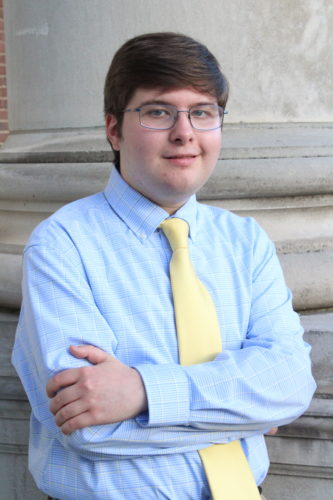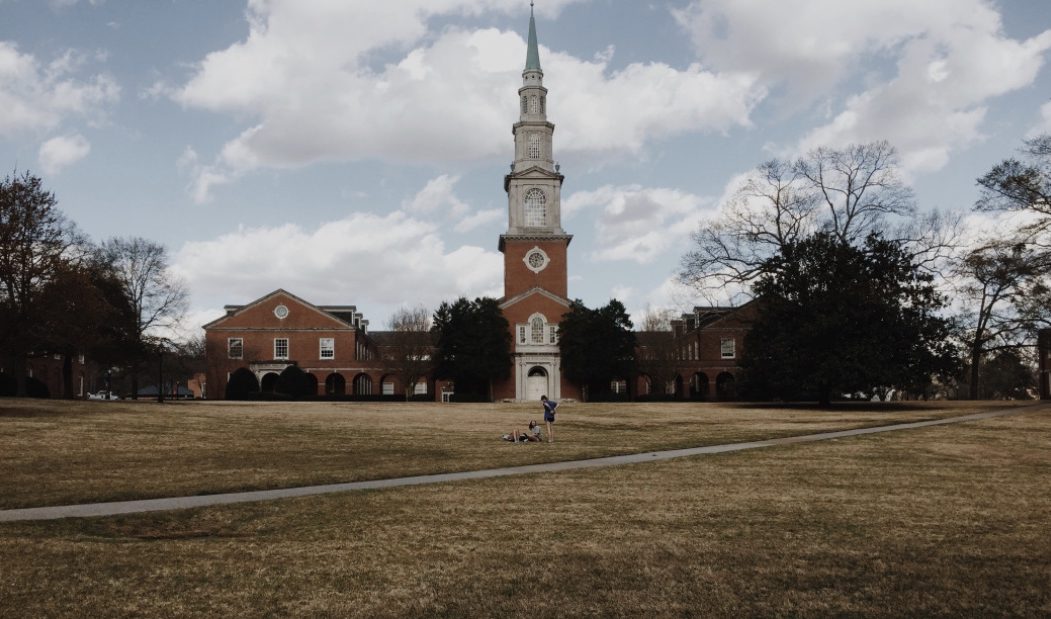Samford University professors debated whether modern science and Christianity are compatible in the 21st Century on Feb. 21, 2019. The event was hosted by the Samford’s Science and Religion Club. The panel consisted of five professors: Elizabeth Dobbins, Stephen Strickland, William Collins, Jeffrey Leonard, and Dennis Sansom.
Strickland, a physic professor, said his faith and the scientific mindset within his work have often clashed as this mindset examines the world entirely through measurement and observations.
“It was this mindset that all there is can be reduced to what you can measure. Everything you encounter and everything you can see, it is all just measurements,” he said. “It gives rise to a lot of ethical problems.”
Another concern Strickland has is that science usually fails to answer the formal cause to questions, or what something actually means. Often times, science answers the efficient cause or showcases the mechanisms that comprise an organism or object. For example, scientists are currently trying to detect consciousness by mapping brain activity through functional magnetic resonance imaging or a fMRI.
“All you can really say about what you are doing here is that you are measuring. There is activity in this place in response to a picture on a screen and you may be able to talk about the mechanisms inside but that is not … explaining why that organization was there in the first place,” he said. “You’re not yet explaining the formal cause.”
According to Strickland, the formal cause extends beyond the human body’s mechanical structures and begins to tie more to a person’s humanity. Without addressing this cause, Strickland argues it is difficult for science alone to answer moral and ethical questions.
“That formal cause is at the heart of the matter when it comes to what you are as a human. If you can’t address that, then you can’t have any sense of a moral or ethical system at all,” he said.
Although science primarily investigates material causes, Dobbins, a biological and environmental science professor, argues most problems humankind faces concern the physical world.
“It is true science is about material cause but we live in a material world. We also live in a moral and ethical world,” she said. “Physical consequences often have moral and ethical implications on human beings.”
From Dobbins’ perspective, an argument or position is weaker if it ignores scientific findings or only embraces certain scientific results.
“To divorce yourself from understanding science because your a religious person makes your ability to make moral and ethical arguments weaker and also shields you from the full range of what it means to be human,” she said.
Dobbins provided a personal example from her childhood. Growing up, Dobbins said being gay was viewed as a choice, but that recent science discovered that certain hormones can influence a person’s sexuality.
“Biologists discovered differences in the brains of gay people and that hormonal exposure could cause animals to behavior more like males or females depending on the hormones they are exposed to,” she said.
According to Dobbins, this discovery presented being gay as less of a choice and forced many to reconsider the morality surrounding it.
“I believe that was significant in having a lot of people step back, no matter how they were raised, and say my friend, who is gay, is just like me but maybe we are all just a little different,” she said. “This is the way they were formed and that is why he is gay or she is a lesbian. It is not a choice and here you can actually see how the absence of science influenced people.”
Collins, a political science professor, disagrees and said a moral choice cannot be made by facts and scientific results alone and is often influenced by a person’s background, their friends and political leanings.
“You can’t draw a normative statement or what I ought to do from a factual statement. Whether it is good or bad is independent of what it is,” he said. The way science cuts away from dealing with final cause in any way makes a moral or ethical choice independent of the science.”
According to Collins, competing sources of authority is one of the biggest roadblocks when facing moral or ethical decisions. Religion, science, and political leanings all serve as authoritative voices. For example, America’s political groups and parties often take stances on morality issues for individuals such as abortion, birth control, and attending church on Sundays.
“When you are talking about what you ought to do, it depends on the group you are associated with. Those are issues that your tribe settles for you,” he said.
Ultimately, these competing sources of authority have created ambiguity.
“So, I’m at a loss when it comes down to what I ought to do. That’s what I mean when I say there is an issue associated with the problem of authority,” he said. “Where do you go to find out what you ought to do?”
Even with U.S.’s tribalized culture, Dobbins still argues everyone, regardless of background, can employ science in their daily choices or ethical decisions and that a good choice or decision encompasses all available information. According to Dobbins, misconceptions have painted religion and science as opposing methods of thinking, which cannot overlap.
“I believe if you don’t use all information you are given then you, cannot make a choice,” she said.

William is our News Editor. He is a Journalism & Mass Communications major from Birmingham, Alabama.




